News
-
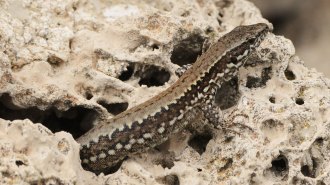 Life
LifeA new lizard parasite is the first known to move from mom to baby
Nematodes were found living in a lizard’s ovaries and the braincase of her embryos — the first evidence of a reptile parasite that jumps generations.
By Pratik Pawar -
 Climate
ClimateFossil fuel use may emit 40 percent more methane than we thought
Ice cores suggest natural seeps release less methane than was estimated, meaning industry produces nearly all of today’s geologic methane emissions.
-
 Archaeology
ArchaeologyAncient ‘megasites’ may reshape the history of the first cities
At least two ancient paths to urban development existed, some archaeologists argue.
By Bruce Bower -
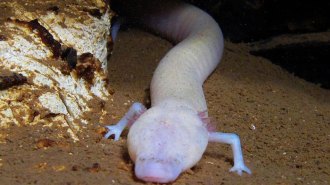 Animals
AnimalsOne blind, aquatic salamander may have sat mostly still for seven years
Olms may live for about century and appear to spend their time moving sparingly.
By Jake Buehler -
 Astronomy
AstronomyMolecular oxygen has been spotted beyond the Milky Way for the first time
Astronomers have detected molecular oxygen in another galaxy for the first time. The discovery is only the third sighting beyond our solar system.
By Ken Croswell -
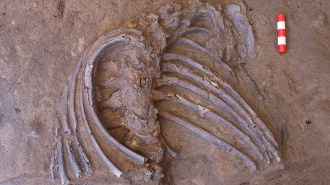 Archaeology
ArchaeologyNew cave fossils have revived the debate over Neandertal burials
Part of a Neandertal’s skeleton was found in a hole dug in the same cave in Iraqi Kurdistan where the “flower burial” was found in 1960.
By Bruce Bower -
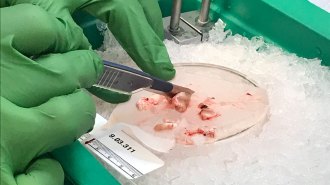 Neuroscience
NeuroscienceLiving brain tissue experiments raise new kinds of ethical questions
An ethicist describes the quandaries raised by working with tissue involved in human awareness.
-
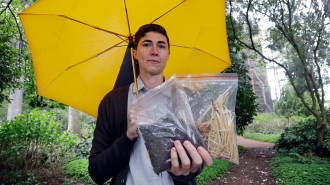 Science & Society
Science & SocietyTurning human bodies into compost works, a small trial suggests
Experiments test the effectiveness and safety of human composting, which may soon be an alternative to burial or cremation in Washington state.
-
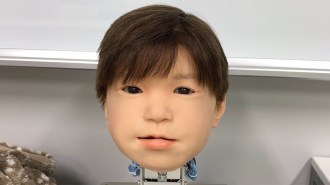 Artificial Intelligence
Artificial IntelligenceLinking sense of touch to facial movement inches robots toward ‘feeling’ pain
Artificial systems that allow a robot to “feel” pain might ultimately lead to empathy.
-
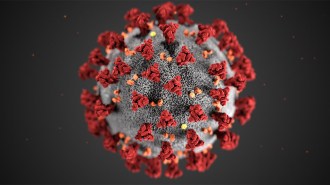 Health & Medicine
Health & MedicineVery few infants seem to be getting sick with the new coronavirus
Scientists tracking how the outbreak of a novel coronavirus is affecting young children and newborns haven’t seen many cases.
-
 Computing
ComputingAI can predict which criminals may break laws again better than humans
Computer algorithms are better than people at forecasting recidivism, at least in some situations, a new study finds.
-
 Health & Medicine
Health & MedicineCoronavirus’s genetic fingerprints are used to rapidly map its spread
Fast and widespread scientific data sharing and genetic testing have created a picture of how the new coronavirus spreads.